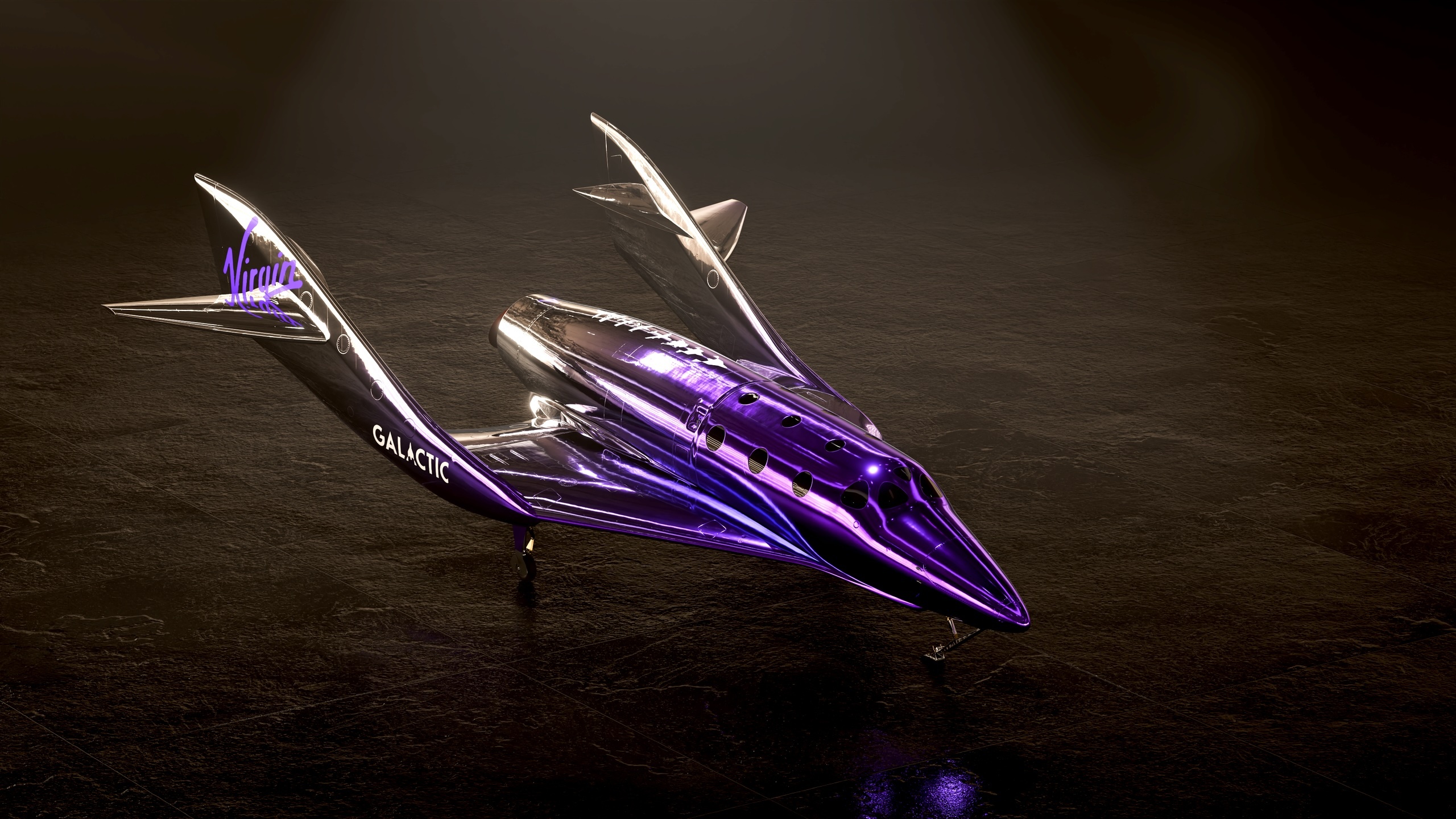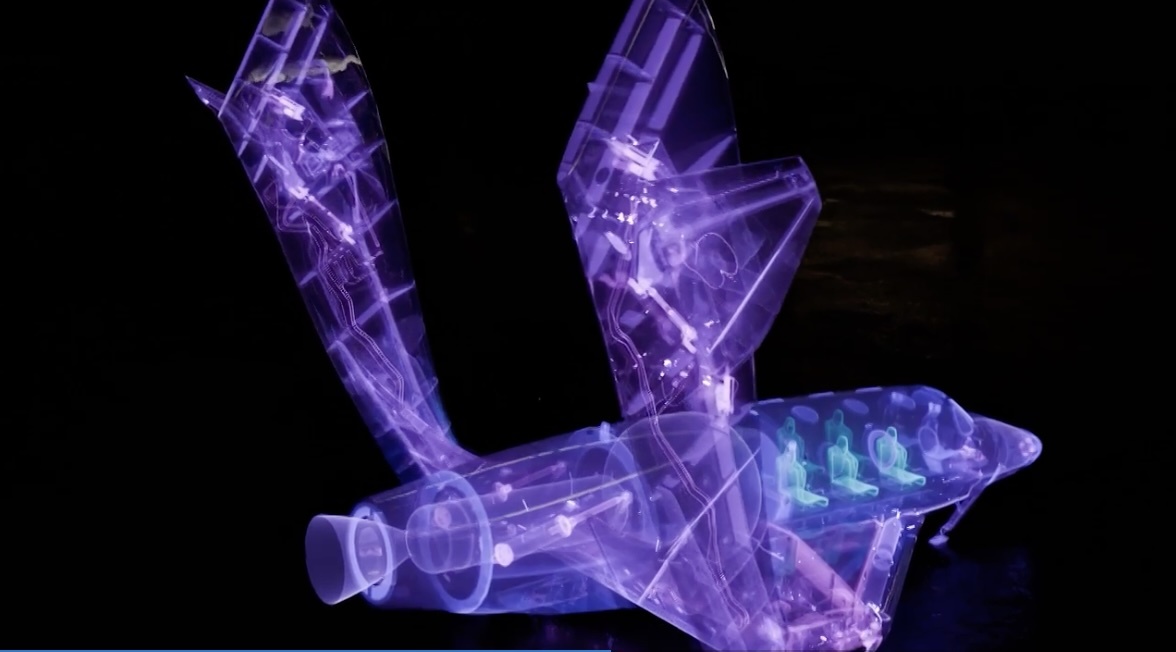12.05.2025

After assembling model rockets as a kid in rural Pennsylvania and dreaming of becoming an astronomer, Mike Moses embarked on a distinguished 17-year NASA career centered on human spaceflight — where he oversaw the final 12 space shuttle missions from Kennedy Space Center.
Today, Moses is guiding development of Virgin Galactic's next-generation Delta-class rocket planes. These sleek spacecraft may start transporting private astronauts on flights soaring more than 50 miles above Earth's surface by fall 2026 from Spaceport America in New Mexico.
"Your goals should not be big. They should be enormous," Moses told hundreds of Florida Institute of Technology graduates during a Saturday, May 10, spring commencement speech.

"Starting a new industry? Enormous. Taking people to space monthly? Enormous. Doing so as a small commercial company safely, repeatedly, with a whole lot of heart? Enormous," Moses said.
"Never discount that what you learn along the way is invaluable for tomorrow," he said.
Moses — who earned a Florida Tech master’s degree in space sciences in 1991 — delivered the College of Engineering and Science commencement speech at the Clemente Center to a crowd of graduates and their relatives and well-wishers. This semester, the university bestowed degrees on 1,842 students hailing from all 50 states; Puerto Rico and the Virgin Islands; and 69 countries.
Moses' space career launched in 1995 as a contracted flight controller at Johnson Space Center in Houston. By 2005, he became a NASA flight director, overseeing space shuttle mission planning and operations.
He was promoted to launch integration manager from 2008 to 2011 at KSC. After shuttle Atlantis' final flight in July 2011, he started working for Virgin Galactic, the California-headquartered spaceplane tourism company founded by British billionaire-entrepreneur Richard Branson.
Branson logged a well-publicized suborbital flight in July 2021 aboard his company's VSS Unity rocket-powered spacecraft.
Virgin Galactic building new Delta rocket planes
Virgin Galactic retired the VSS Unity last year. In March, the company started assembling its first two next-generation Delta rocket planes at a newly constructed hangar complex at Mesa Gateway Airport in Arizona. In a pre-speech interview with FLORIDA TODAY, Moses said roughly 100 people are working there building the six-passenger spacecraft, with a "surge" of New Mexico-based employees expected to join later.
"Production is going well. We had been doing everything in-house, so now we've got out-of-house vendors. In the Dallas-Forth Worth area, we're making carbon-fiber parts like crazy. And they're starting to flow into Phoenix and Mesa," Moses said.
"We've started assembly. So we have the wing and the fuselage coming together first," he said.
The first Delta glide test flight should occur next spring, followed by the inaugural spaceflight carrying research payloads in summer 2026. The first private astronaut flights are planned for fall 2026. Moses said this schedule remains on track, with more details to come during the company's May 15 first-quarter earnings call.
Moses said the Delta will sport superior avionics and components — while being easier to maintain — than its four-passenger predecessor, the VSS Unity.
The flight profile will remain the same: "Release from the mother ship. Light the rocket motor. Go Mach 3 straight up, about a minute of rocket motor burn. You're in space. Weightlessness — floating out of your seat for about three or four minutes. And then, come back and land at the runway you took off from," Moses said.
"We'll now have six passengers on board instead of four. The ship's more robust. But the big difference is, we can now turn and do that every three days, as opposed to once a month. Unity was once a month," he said.
"So that's the big economic engine of the Delta class, right? It allows us to fly faster," he said.
Virgin Galactic plans expansion to more spaceports
Moses said Virgin Galactic has a list of about 700 future passengers, though the company probably will not begin actively selling tickets until test flights start next year.
Looking ahead, he said Virgin Galactic plans to "fill out" Spaceport America, which is located near Las Cruces in southern New Mexico, by offering daily missions using four Delta rocket planes. These vehicles will fly across about 1,000 miles of territory from the spaceport. More locations are planned later.
"We've got lots of interest around the world for additional spaceports," Moses said.
"Then you'll see us start to go back to what we originally had the vision of, but maybe we were biting off more than we could chew with the initial startup. Now, you can look at point-to-point travel, hypersonic research or other missions for our vehicles," he said.
"But I think the science research-private astronaut experience, that's our bread and butter for 10 years," he said.
Quelle: Florida Today
